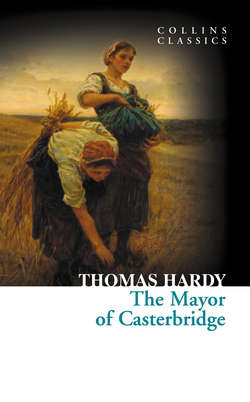Читать книгу The Mayor of Casterbridge - Томас Харди, Eleanor Bron, Томас Харди (Гарди) - Страница 19
CHAPTER 14
ОглавлениеA Martinmas summer of Mrs Henchard’s life set in with her entry into her husband’s large house and respectable social orbit; and it was as bright as such summers well can be. Lest she should pine for deeper affection than he could give he made a point of showing some semblance of it in external action. Among other things he had the iron railings, that had smiled sadly in dull rust for the last eighty years, painted a bright green, and the heavy-barred, small-paned Georgian sash windows enlivened with three coats of white. He was as kind to her as a man, mayor, and churchwarden could possibly be. The house was large, the rooms lofty, and the landings wide; and the two unassuming women scarcely made a perceptible addition to its contents.
To Elizabeth-Jane the time was a most triumphant one. The freedom she experienced, the indulgence with which she was treated, went beyond her expectations. The reposeful, easy, affluent life to which her mother’s marriage had introduced her was, in truth, the beginning of a great change in Elizabeth. She found she could have nice personal possessions and ornaments for the asking, and, as the medieval saying puts it, ‘Take, have, and keep, are pleasant words.’ With peace of mind came development, and with development beauty. Knowledge—the result of great natural insight—she did not lack; learning, accomplishments—those, alas, she had not; but as the winter and spring passed by her thin face and figure filled out in rounder and softer curves; the lines and contractions upon her young brow went away; the muddiness of skin which she had looked upon as her lot by nature departed with a change to abundance of good things, and a bloom came upon her cheek. Perhaps, too, her grey, thoughtful eyes revealed an arch gaiety sometimes; but this was infrequent; the sort of wisdom which looked from their pupils did not readily keep company with these lighter moods. Like all people who have known rough times, light-heartedness seemed to her too irrational and inconsequent to be indulged in expect as a reckless dram now and then; for she had been too early habituated to anxious reasoning to drop the habit suddenly. She felt none of these ups and downs of spirit which beset so many people without cause; never—to paraphrase a recent poet—never a gloom in Elizabeth-Jane’s soul but she well knew how it came there; and her present cheerfulness was fairly proportionate to her solid guarantees for the same.
